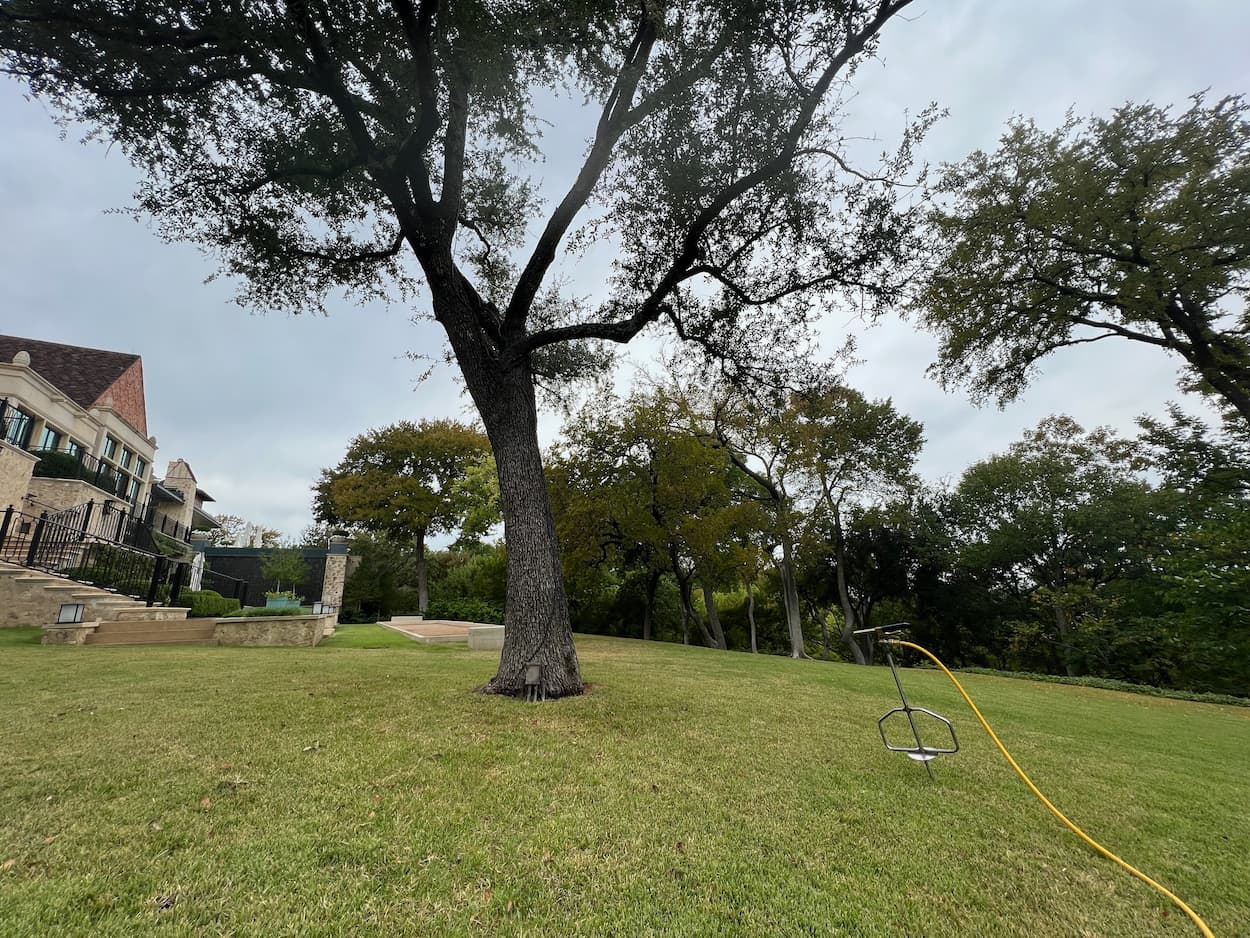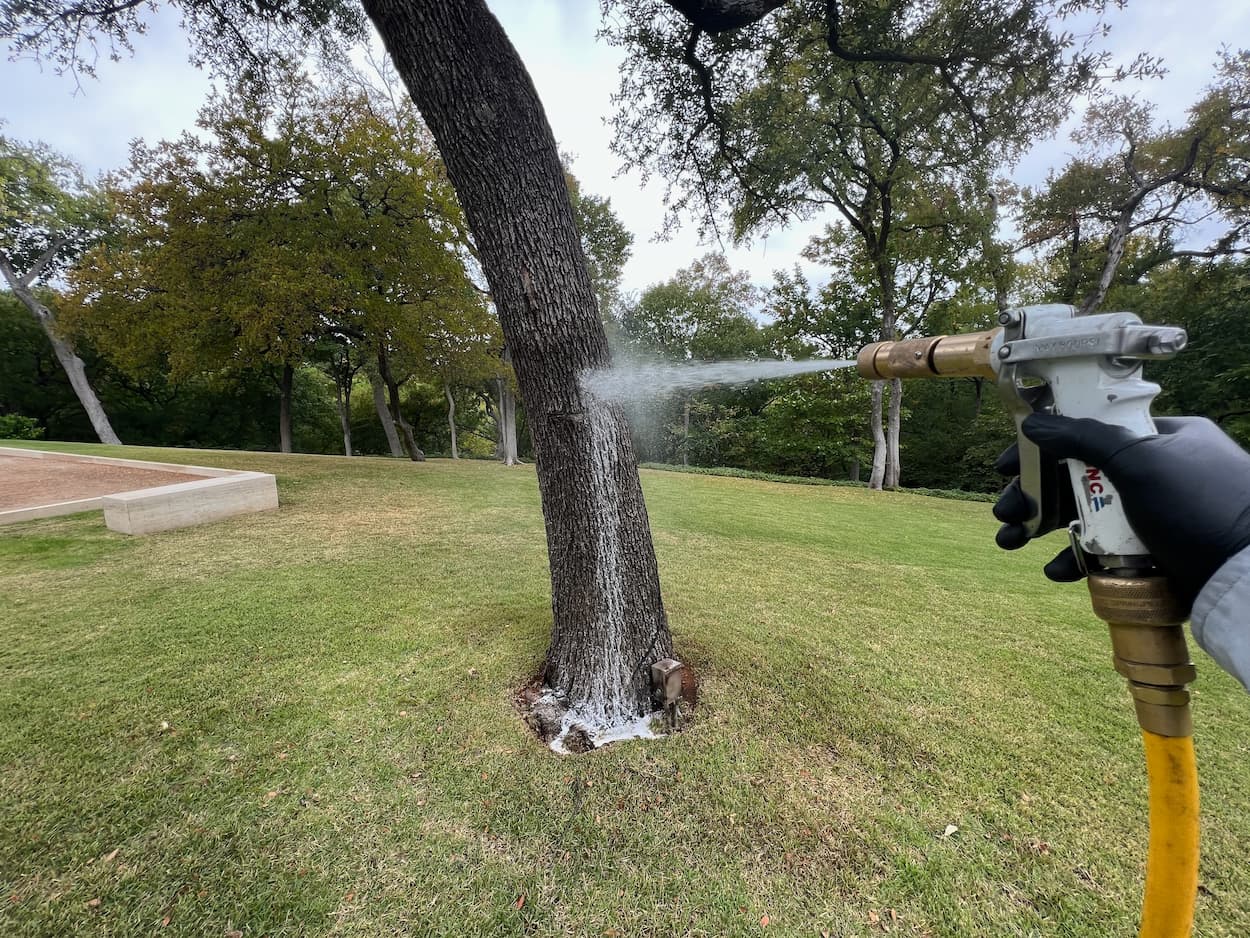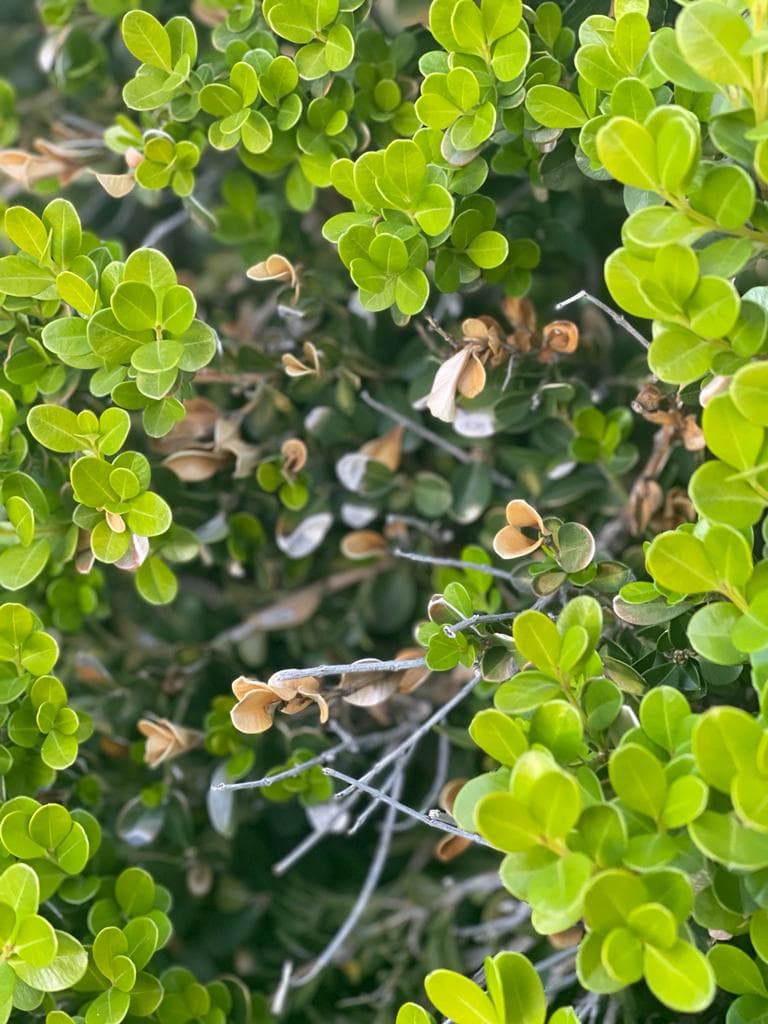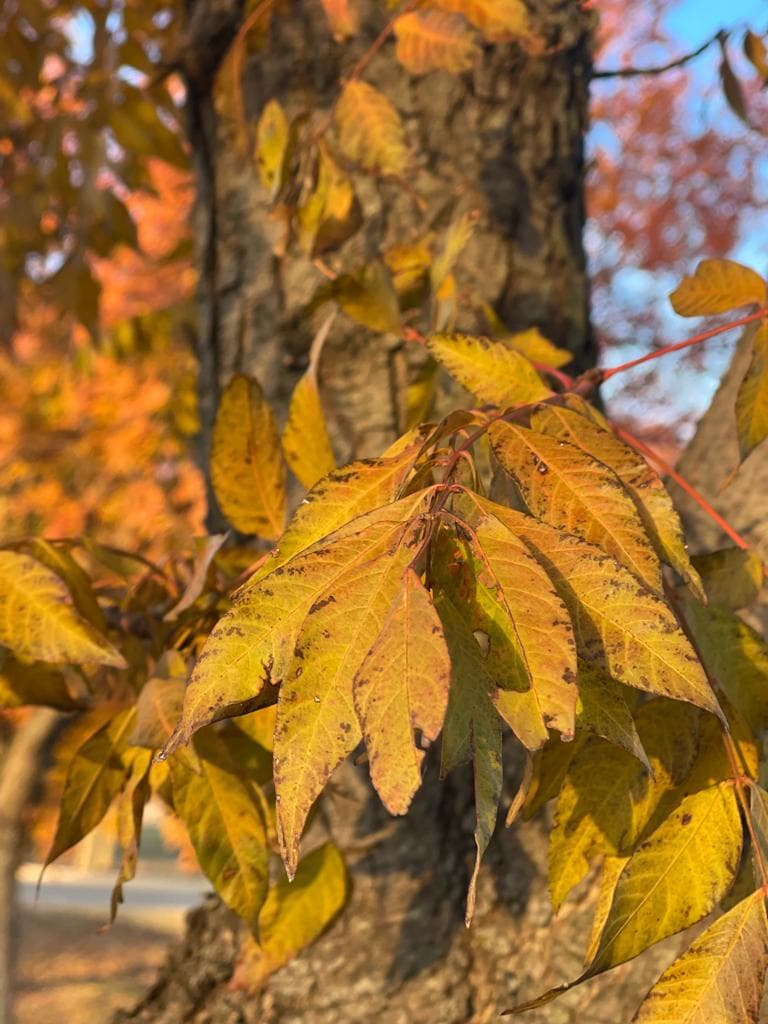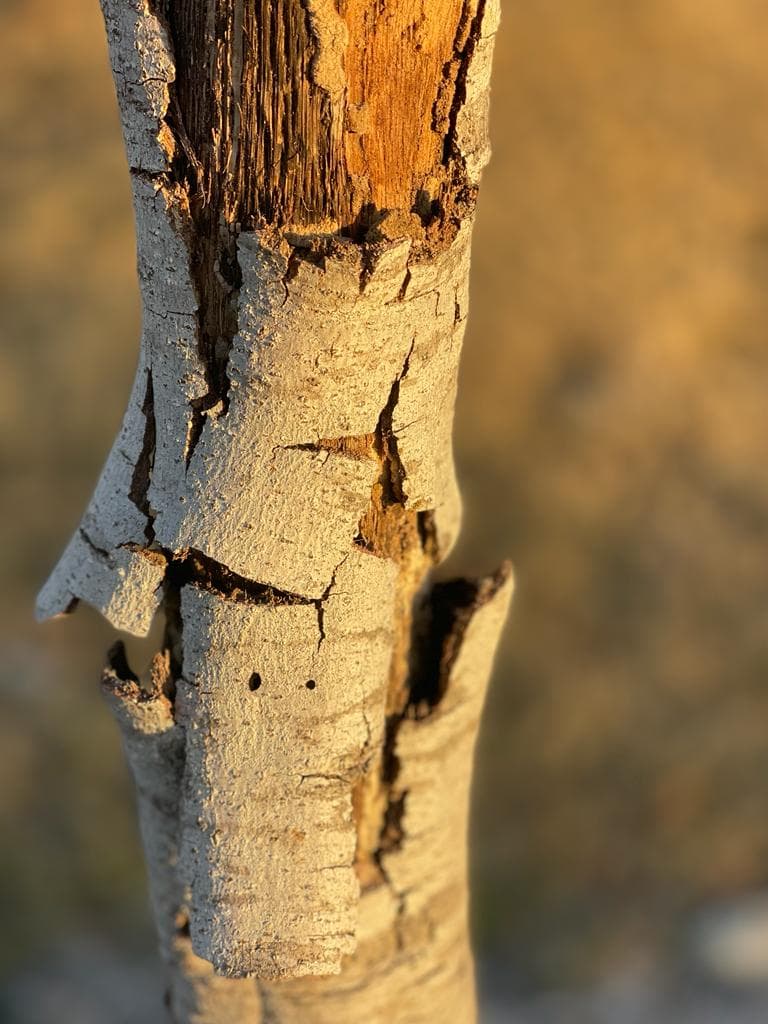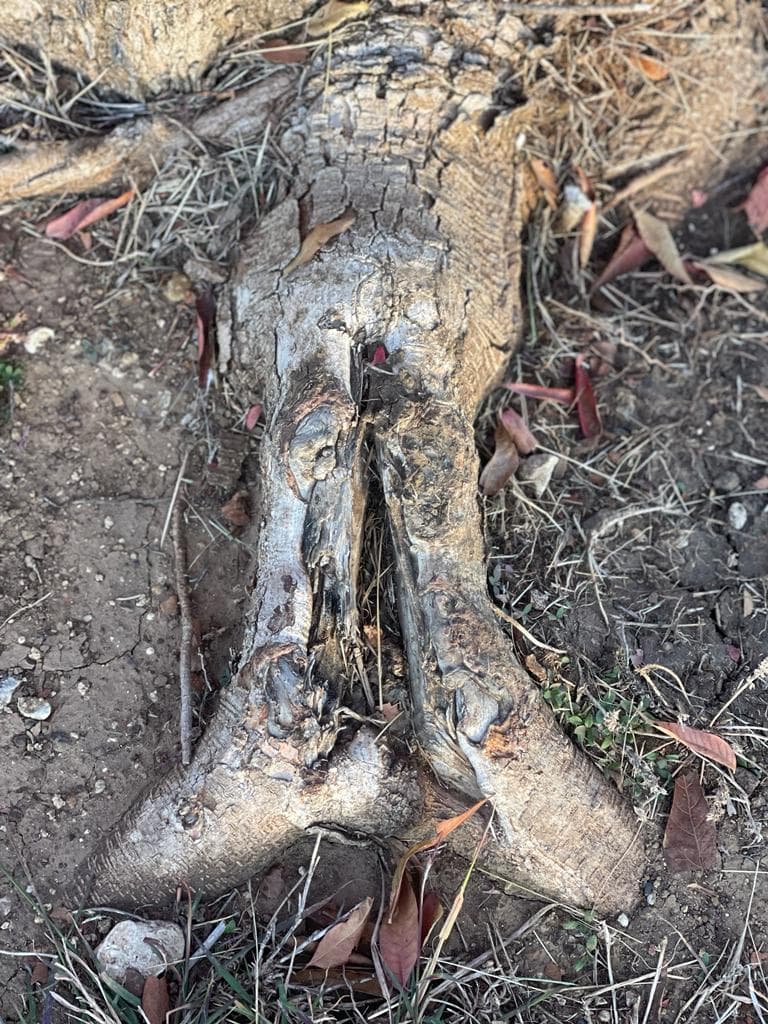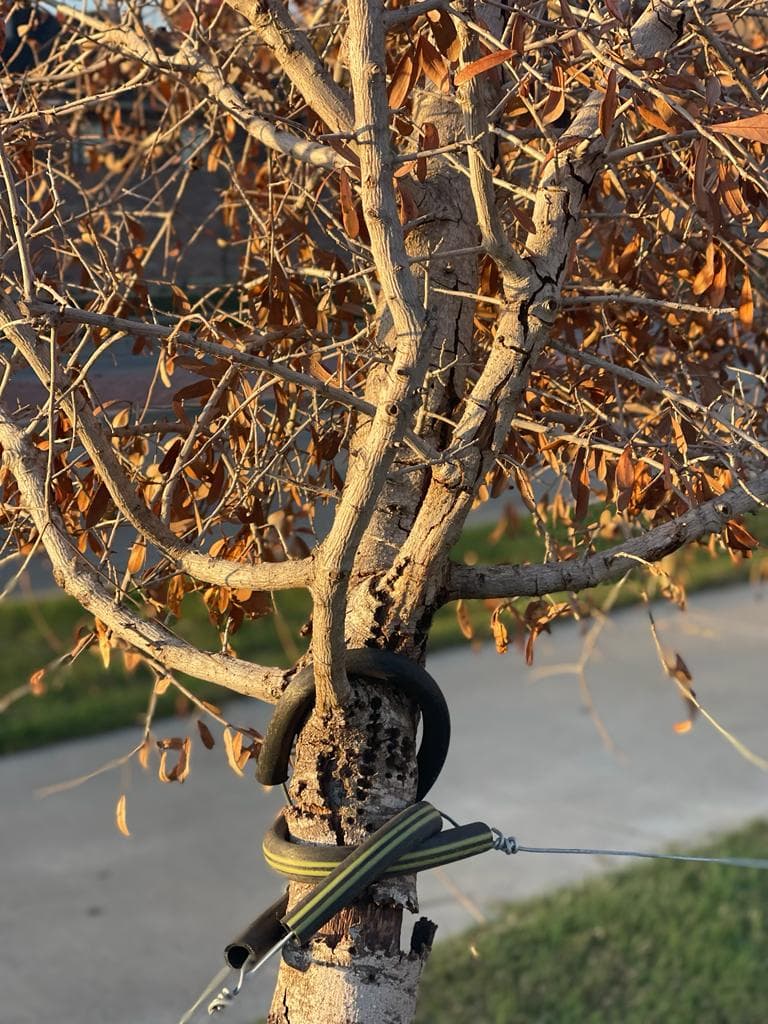Texas Shrubs & Tree Health Care Experts
Caring For Texas Shrubs & Trees Since 1990 Get A Free QuoteCall (817) 880-6130Tree & Shrub Pest Treatment Services in Blue Mound, TX
Our ISA Certified Arborist Can Help Treat Your Trees and Shrubs From Pests in Blue Mound, TX.
Arborist USA provides Tree & Shrub Pest Treatment Services in Blue Mound, Texas, and the surrounding areas.
Blue Mound, a picturesque city nestled in Texas, boasts of abundant green landscapes marked by a diverse array of trees and shrubs. However, these natural sanctuaries frequently come under attack from various pests, posing threats to their health and overall foliage. Therefore, regular, and effective tree and shrub pest treatments become imperative to conserve Blue Mound’s appealing green habitats.
In conclusion, upholding the lush biodiversity of Blue Mound mandates prudent and effective management of tree and shrub pests. By ensuring timely pest treatments, Blue Mound continues its commitment to cherish and protect its verdant surroundings, contributing to communal health and well-being.
If you are in need of Tree & Shrub Pest Treatment Services in Blue Mound, TX, please get in touch with Arborist USA today by calling us at (817) 880-6130, your Tree & Shrub Disease Specialist.
Signs of a Sick Tree or Sick Shrub
- Dead Branches
- Yellowing Leaves
- Fungi or Decay
- Bark Falling Off
- Discolored or Rusted Leaves
- Dying Tree or Shrub
- Leaf Discoloration
- Root or Insect Damage
- Leaves look like they’re being eaten
- Bark is Peeling
- Holes in leaves
- Holes on Bark or Branches
- Stunted Growth
- Canopy Dieback
- Bark Abnormalities
- Wilting
Tree & Shrub Helpful Tips
1. Prevalent Pests:
Some pests commonly found infesting trees and shrubs in Blue Mound include beetles, mites, aphids, borers, caterpillars, and scales. Immediate identification and effective treatment can help arrest their damage
and spread.
2. Detecting Pest Presence:
Common signs of pest infestations comprise holes in leaves or bark, discolored or wilting leaves, abnormal leaf loss, reduced growth, and canopy dieback. Recognizing these signs can be pivotal in triggering timely action and safeguarding the plants.
3. Urgency of Timely Treatment:
Ignoring pest infestations might lead to the gradual weakening and ultimate death of the affected tree, elevating costs tied to its removal and replacement. Therefore, swift treatment upon noticing distress signals is vital.
4. Role of Professional Services:
The intervention of professionals can be instrumental in dealing with tree pests. They have the expertise to accurately identify the pest species, formulate a comprehensive treatment plan, monitor its effectiveness, and fine-tune it, if required.
5. Methods of Treatment:
Depending on the specific type of pest and the severity of infestation, a blend of treatment strategies may be devised. These could include biological treatments (utilizing natural predators), chemical treatments (application of pesticides), cultural treatments (adherence to regular tree care practices), and mechanical treatments (direct pest removal).
6. Preventive Measures:
Rather than addressing an outbreak, attempts should always be made to prevent pest infestations. Regular pruning, correct watering, suitable fertilizing, and maintaining plant diversity to inhibit pest domination can be effective preventive strategies.
7. Integrated Pest Management (IPM):
Incorporating IPM, a holistic approach that integrates multiple strategies for pest treatment, is highly recommended due to its superior efficacy and least environmental damage.
8. Safeguarding Biodiversity:
While combating pests is of utmost importance, ensuring the overall well-being of beneficial insects or local wildlife is equally crucial. Professional services are well-equipped to strike this balance.
9. Community Involvement:
The active contribution of community members in identifying signs of pests at inception, implementing preventive methods, and reaching out to professionals in a timely manner is vital for effective pest management.
10. Promotion of Knowledge and Awareness:
Education about the nature of local pests, signs of infestations, and effective treatment strategies can empower community residents and invoke proactive participation in preserving the green landscapes.
If you’re concerned or have any further questions about our Tree & Shrub Pest Treatment Services in Blue Mound, TX, or surrounding areas in North Texas, please call us at (817) 880-6130.
Tree & Shrub Pests
Listed below are common Tree & Shrub Pests found in Texas.
Aphids
A white soft body insect that creates a sticky "honey dew" structure on limbs or leaves, blocking nutrients.
Bagworms
Bagworms lay eggs that create small cone-shaped structures less than three inches in length.
Beetles
An invasive wood borer that is subject in all wood tissue that causes severe decline in trees health.
Gypsy Moth
A larva that boars into leaf structure that cause lesser of a foliation and decline in overall leaf structure.
Oak Gall
A growth deformity known as a "gall" commonly occur on oak trees subject to branches and other structures.
Termites
Termites, wood-destroying insect, eats away at all wood tissue, damaging the structures of the trees.
Twig Girdlers
Being a member of the long-horned beetle family, these girdlers are known to eat leaf and other tree areas.
Webworms
These caterpillars spin white webbing bag nests in tree branches and eat your tree foliage (leaves).
Certifications

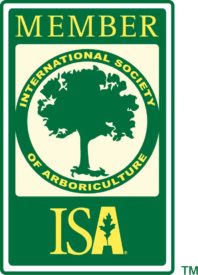

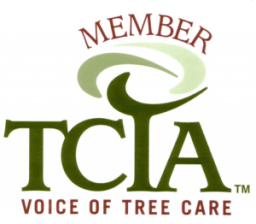
Our Reviews
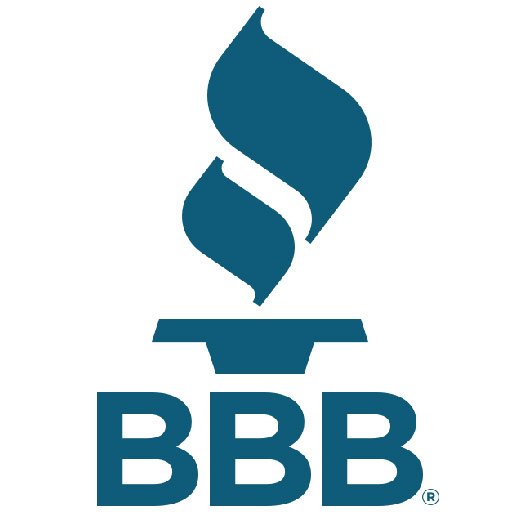
A+ BBB Rating based on 31 BBB Reviews
4.8/5.0 based on 83 Top Rated Local Reviews
4.6/5.0 based on 36 Facebook Reviews
4.0/5.0 based on 4 Trust Pilot Reviews

4.9/5.0 based on 90 Google Reviews
4.5/5.0 based on 13 Yelp Reviews
29 Recommendations on Nextdoor
Total Reviews: 286 ![]() Real Customer Reviews
Real Customer Reviews

